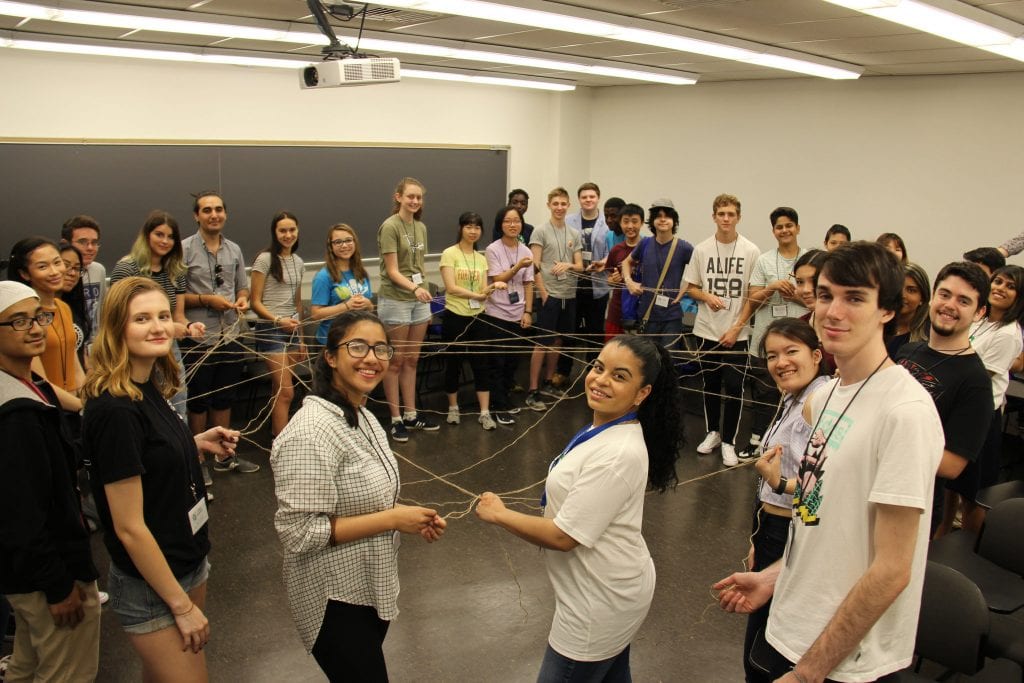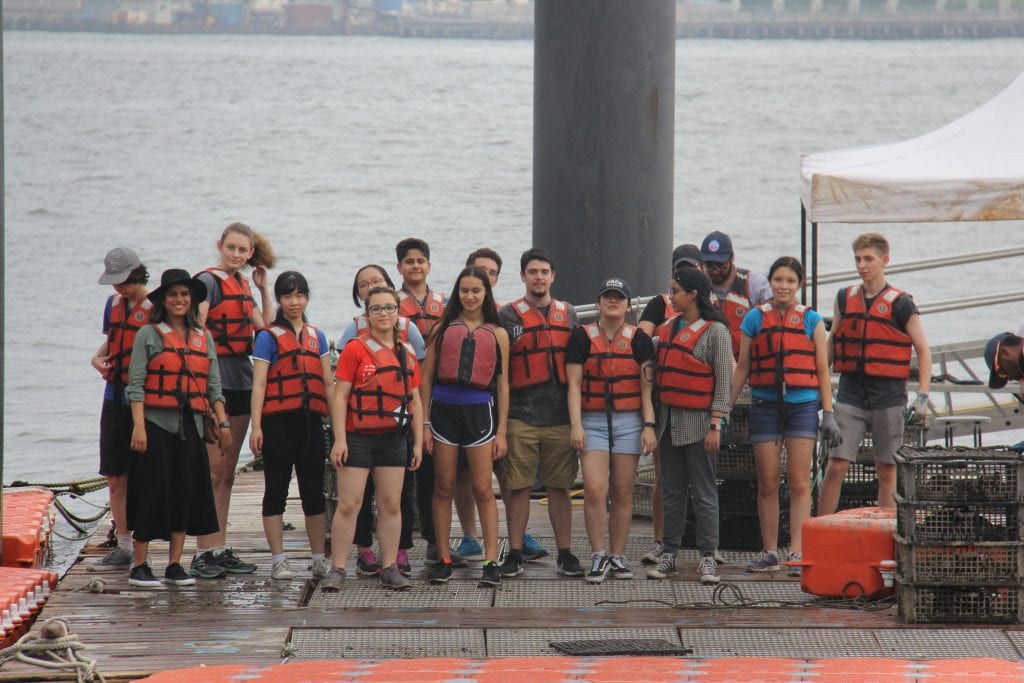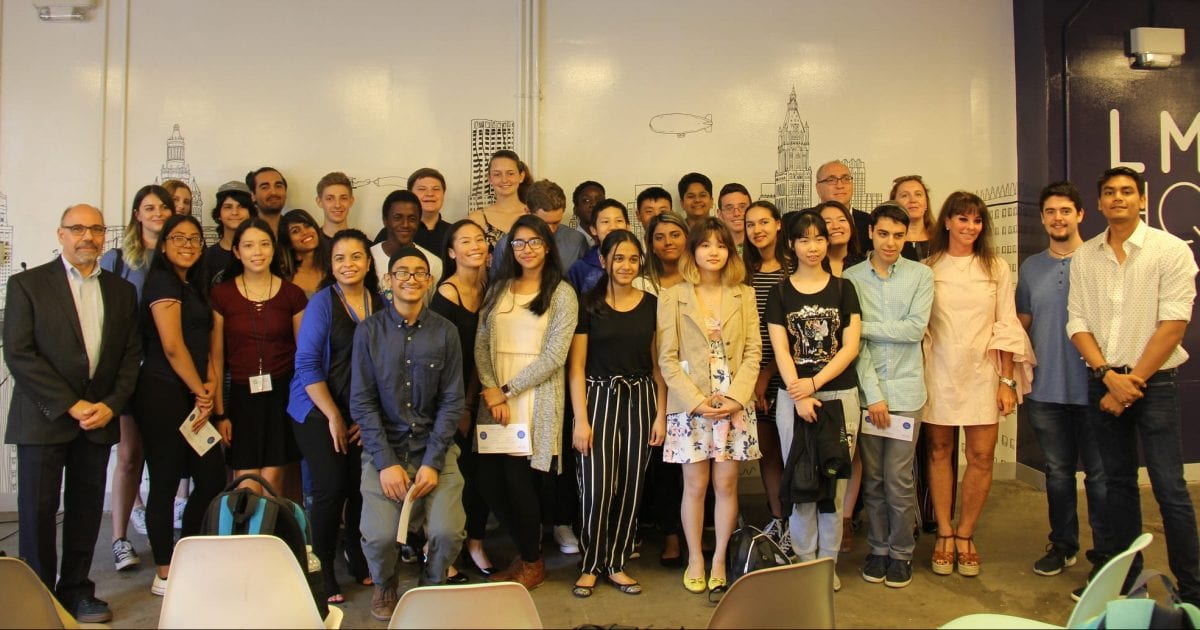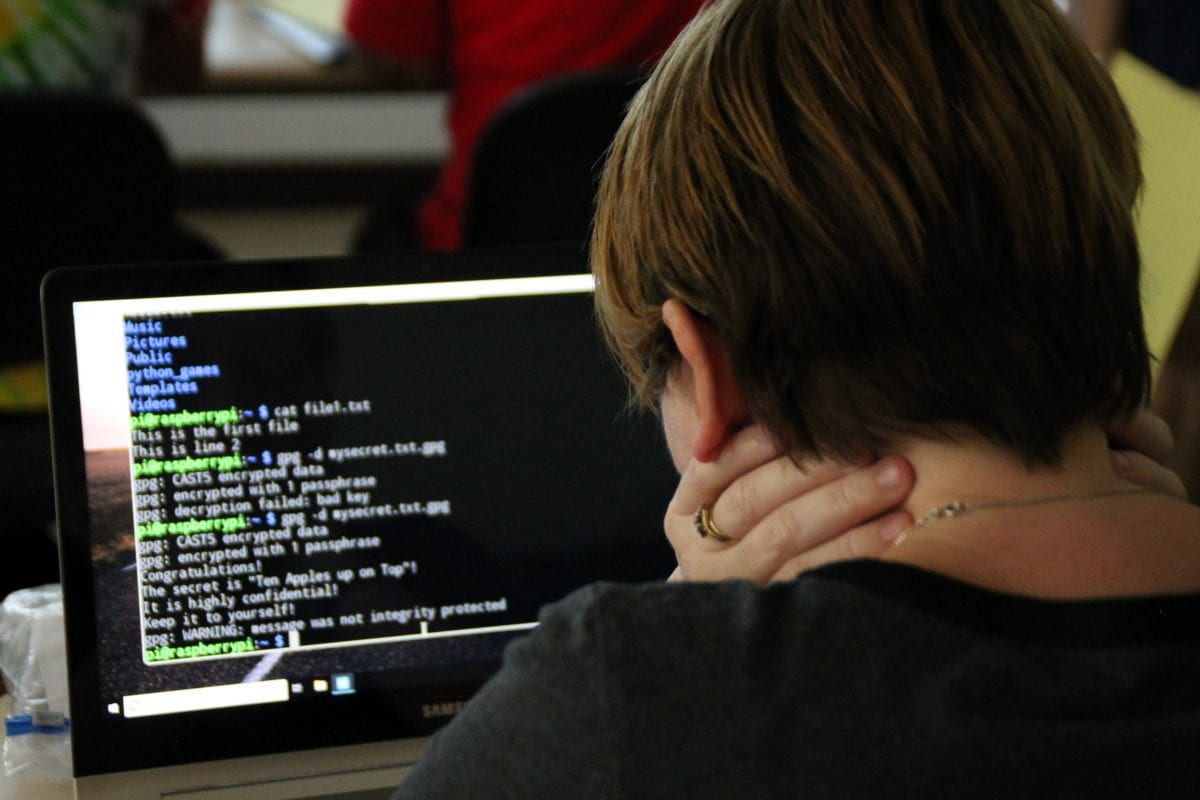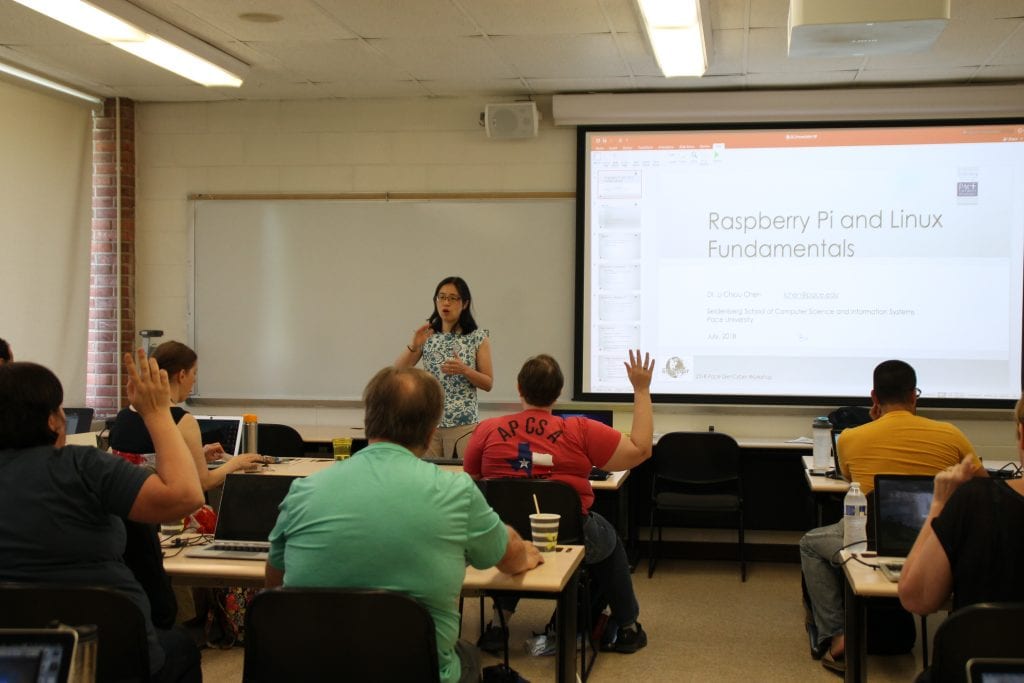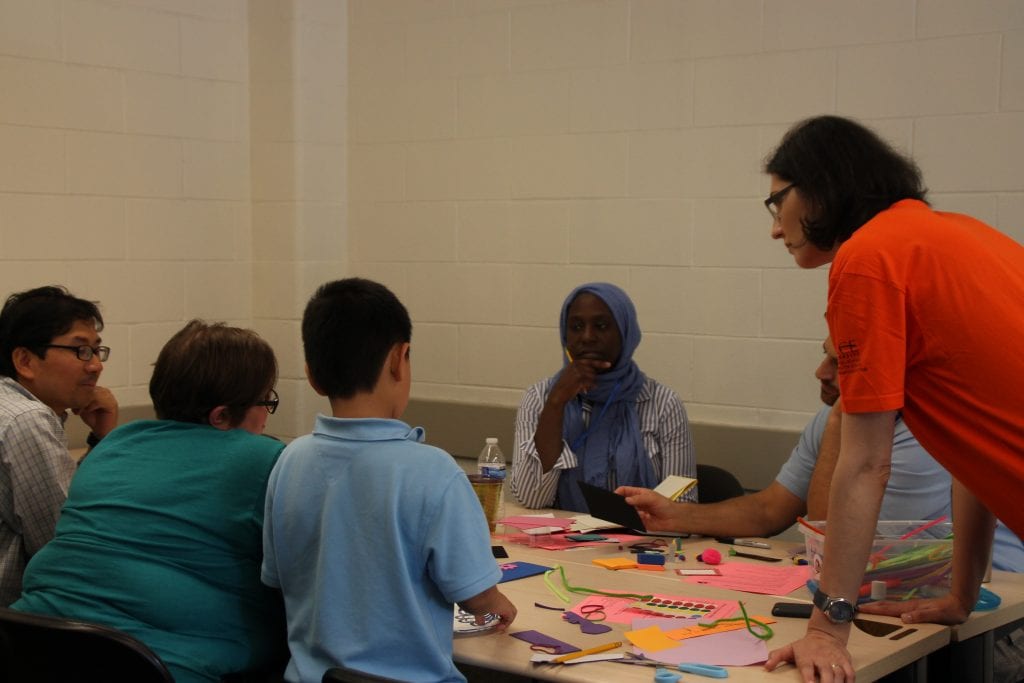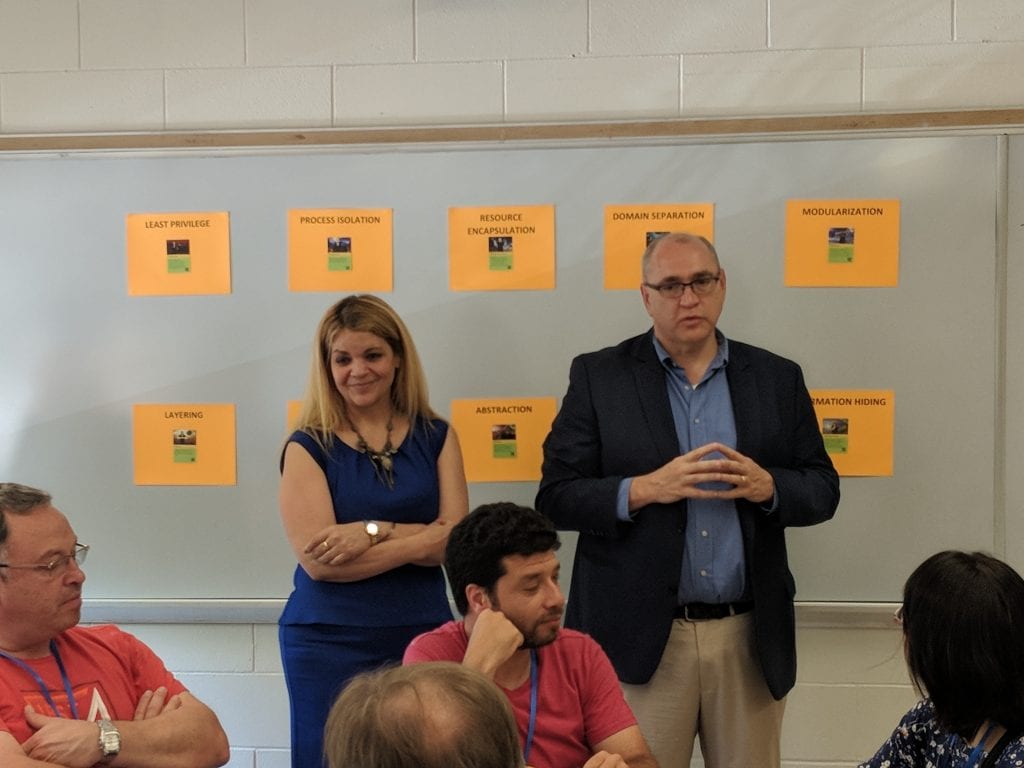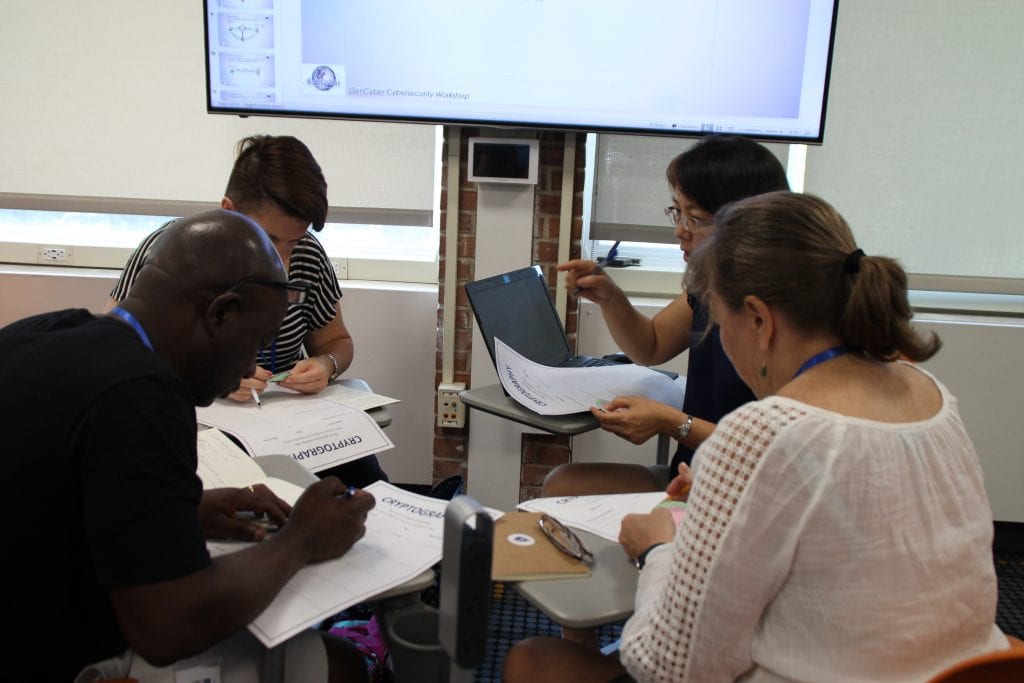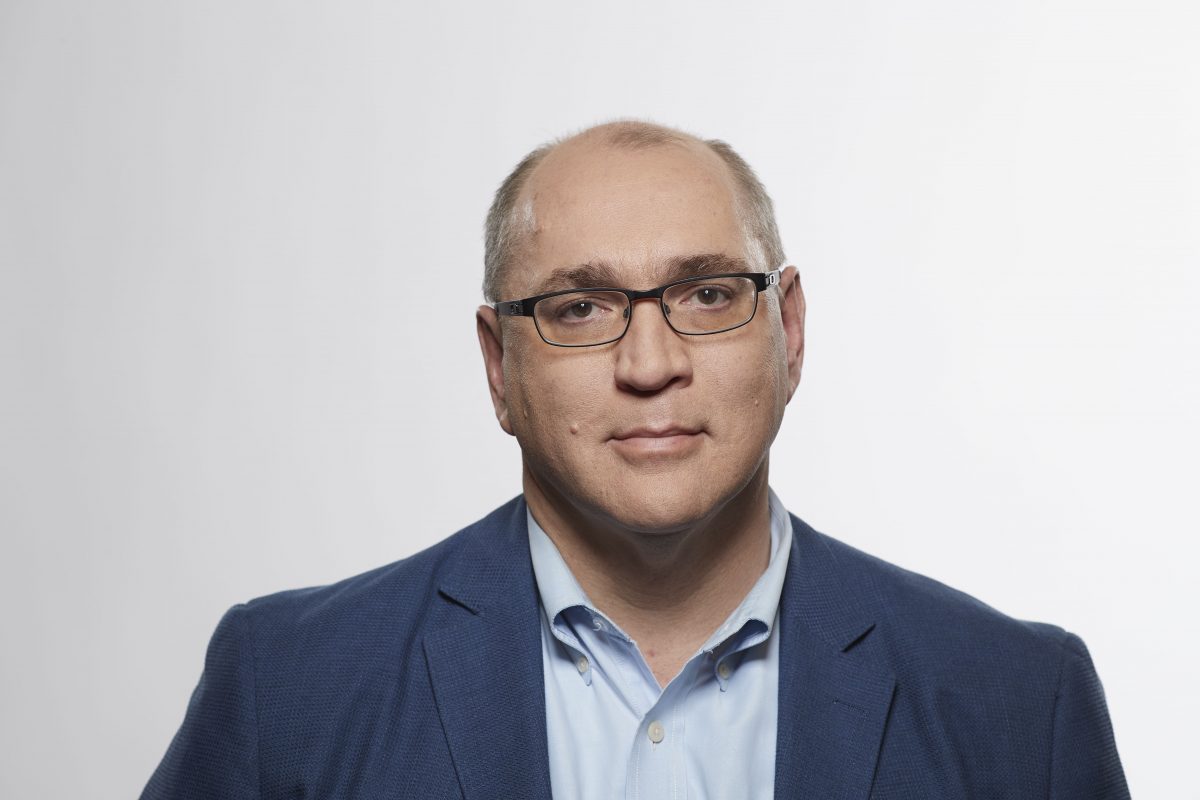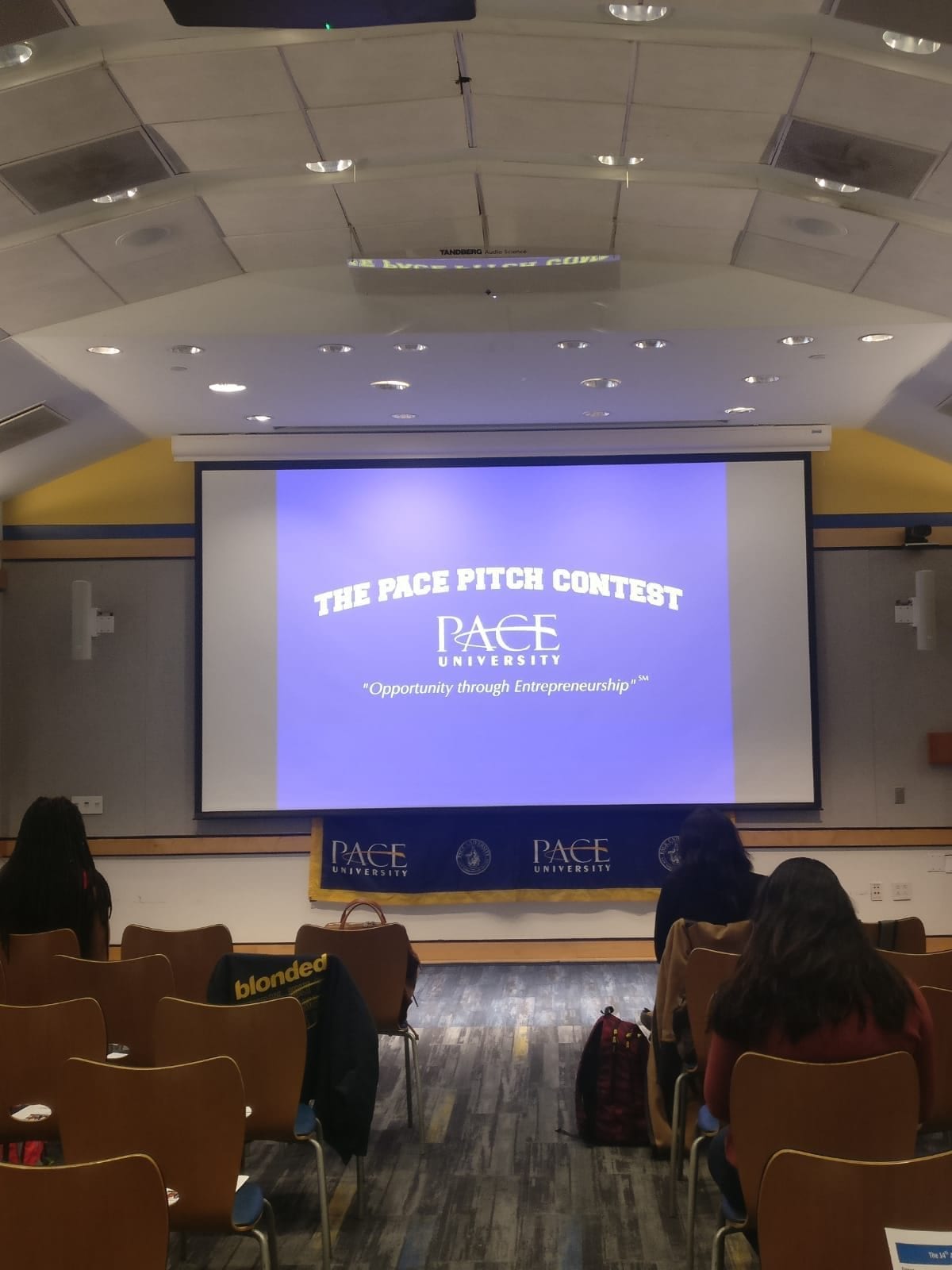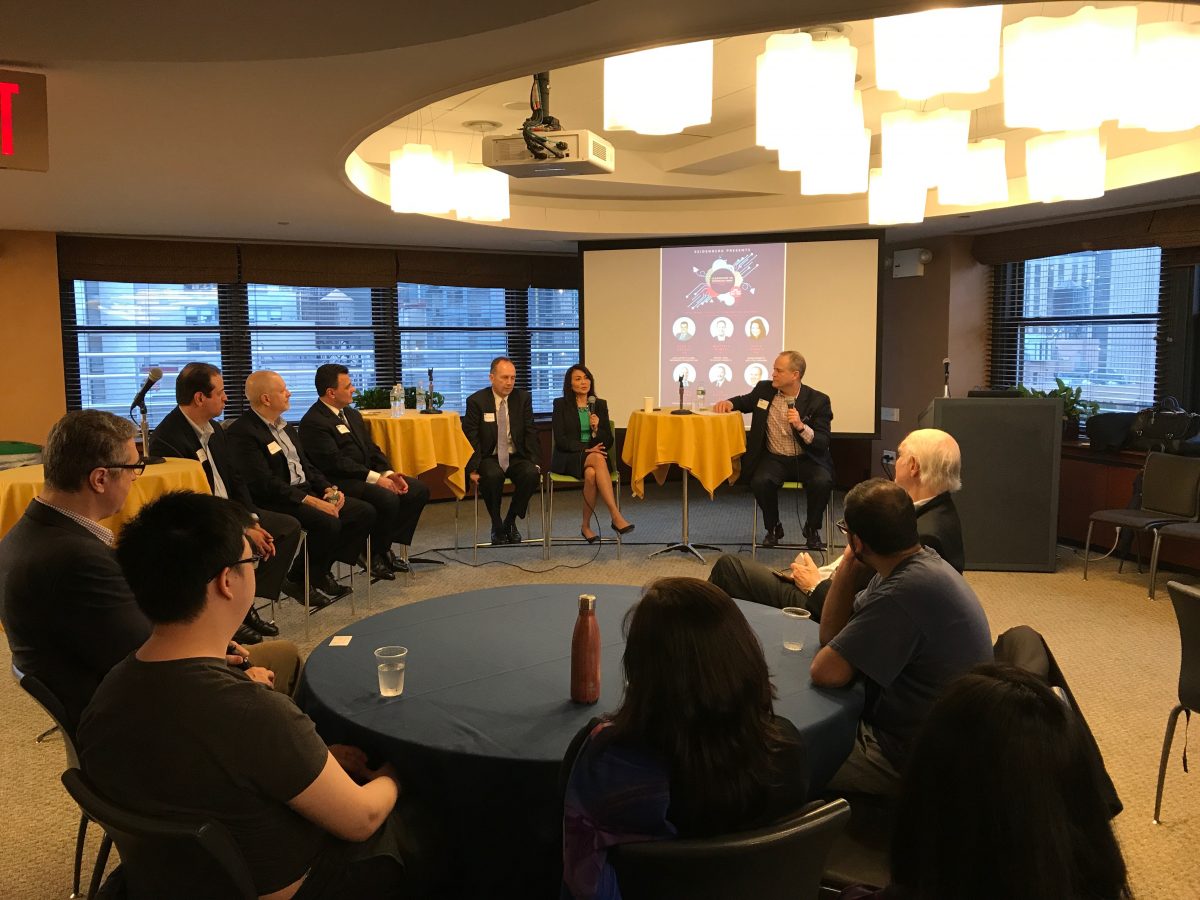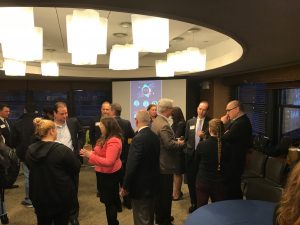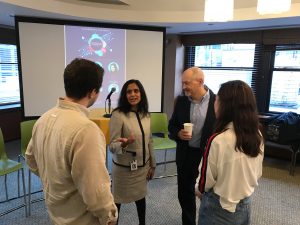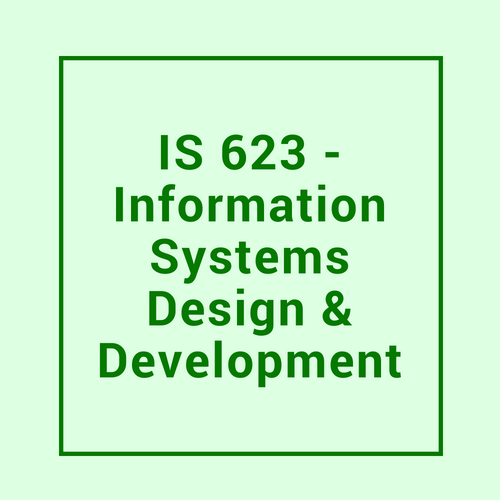The Pace Pitch Contest was held on Thursday, April 19th, 2018, in the Bianco Room of Pace University, and we are proud to announce that our Seidenberg students achieved the first and the third places.
The contest started with a short opening speech by Prof. Bruce Bachenheimer, Executive Director of the Entrepreneurship Lab. He explained basic pitching rules to all of the finalists and welcomed the judging panel for the contest.
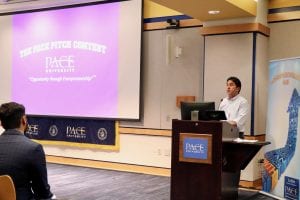
Each of the nine finalist teams were provided with 3 minutes of time and 5 slides to present their pitch.
Finalists had to touch upon the following during their pitch:
- Business description – details of the venture and what it does
- Market analysis – characteristics of the market and description of its customers
- Product or service analysis – the specifics of the product or service
- Competition – identify current and potential competitors
- Marketing strategy – how sales will be achieved
- Operations – how the product or service will be produced and delivered
- Management – an assessment of the entrepreneur(s) and team
- Finances – an overview of the required resources and economics of the venture
- Investment proposal – the terms and conditions offered to investors
- Presentation – overall effectiveness of the actual presentation
The judging panel –
Danny Potocki, Founder, FINIS Ventures
Christine Roth, Economic Development Advisor
Jonathan M. Satovsky, Founder & CEO, Satovsky Asset Management, LLC
Sandy Wollman, Co-Founder and Managing Director, Westchester Angels
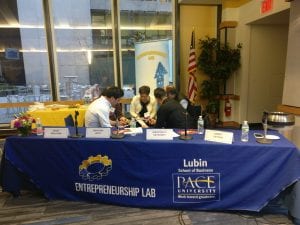
With this, started the 1st pitch of the night-
Quincy Doccy (BS in Computer Science), Weichao Hou (MS in Finance) and Avinash Mudduluru (MS in Computer Science) presented AngelEats – an online platform building a bridge between restaurants and non-profit organizations and giving food to people in need.
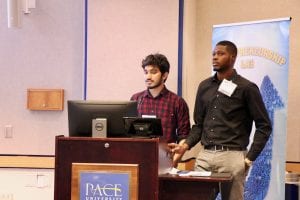
Followed by that was Arogyaa – a mobile application that maintains patients’ medical history, and which coordinates with different doctors and helps them collaborate with patients. Arogyaa was presented by Ankit Mohokar, Chinmay Deshpande and Shivani Gade all from (MS in Computer Science)
The next pitch in the list was Cuddlefish, presented by Sumeet Gujaran (MBA in Financial Management) and Jethro Widjaja (BBA in Finance). Cuddlefish is a blockchain based platform which aims to promote financial inclusion for all through microfinance funded by retail investors in developed countries.
Our next pitch is iCards, an app which seeks to revolutionize the game designed by the pitchers, fully integrating the best parts of the industry into a comprehensive, universal platform to trade, play, and collect cards. iCards was presented by Jen McCall (BS in Computer Science) and John Mulcahy (BS in Computer Science)

Now it was time for Redact– a legal organization that works with individuals who have been convicted of a crime to have their criminal records sealed. It was presented by Christopher Matcovich (full-time 3L)
RockBox was our next pitch presented by Zakiya Sims ( Bs in Computer Science) and Nathan Robinson, delivers handmade cocktails from all over the world to the customers’ doorstep. With monthly subscriptions, customers will be provided with the alcohol, bitters, mixers and fresh produce needed to create their own boozy beverage.
Next pitch Sylvian Hyde was presented by Jabari Chambers (MBA in Human Resources and Financial Management) and Sylvian Hyde. It’s an emerging luxury menswear brand founded and based in New York City. The company currently offers ready-to-wear men’s apparel as well as custom and bespoke design services.
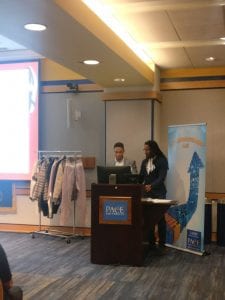
WOTOPA is an online platform where campus students can buy, sell, donate, offer services and can build an inter-university network by exchanging ideas and collaborating via forums. It was presented by Haseeb Ur Rahman (Computer Science), Suman Saurabh (Computer Science) and Varad Raj Shere (Computer Science) and Dipika Sankhe.
And the last one, @Pace (Augmented Tour of Pace University)– a Business-to-Customer (B2C) software startup focusing on augmented reality (AR). The program allows users to explore Pace University via a mobile application. The pitchers were – Kenneth Okereke (Computer Science) and Stephanie Okereke (Computer Science)
After the end of our last pitch, now it was time for the judging panel to make their decisions.
Here are the results:
- AngelEats – Quincy Doccy, Weichao Hou, and Avinash Mudduluru was awarded 1st prize of $1000
- Sylvian Hyde – Jabari Chambers and Sylvian Hyde achieved 2nd position with a cash prize of $500
- iCards – Jen McCall and John Mulcahy received 3rd place and prize of $250
With so many amazing pitches, the 14th annual Pace pitch contest was a huge success. And now we are eagerly waiting for the 15th annual Pace pitch contest next year!
Seidenberg also swept the stage at the 13th Pace Pitch Contest – read all about it here!
